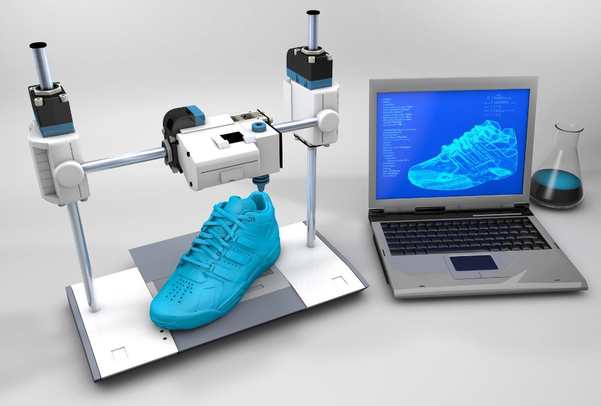The rapid evolution of technology is driving change and progress at a dizzying pace.
Not only technological advances, but also the impact of the COVID-19 pandemic, have altered the landscape for IT professionals.
These professionals will have to be adaptable, constantly learning, unlearning, and relearning as the needs of the contactless world change.
Artificial intelligence will become increasingly common, with the growth of natural language processing and machine learning.
This means that AI will be able to understand us better and perform more sophisticated tasks.
The advent of 5G is expected to transform our lives and work in the future.
For individuals, this means keeping abreast of emerging technologies and the latest trends.

It also means being proactive in preparing skills for the future to ensure job security.
With the majority of the world's IT population working from home due to the pandemic, there is an opportunity to make the most of this moment.
Here are the top 18 emerging technology trends to watch and try to learn for the future, with the potential to secure a job in one of these cutting-edge fields.
1. Computing capability
The digital age has witnessed a sharp increase in computing power, which has permeated almost every technological device and apparatus.
Predictions from data science professionals indicate that the IT infrastructure will continue to improve in the coming years.
In addition, we now have 5G technology, with 6G on the horizon that promises even greater capabilities.
This proliferation of computing power is leading to an increase in technology jobs in the industry, with a need for specialized skills to fill these roles.

From data science to robotics and IT management, the field of computing will power the bulk of employment in all countries.
With the increase in demand for IT, sectors such as:
- Customer service
- IT equipment
- Technicians
- Relationship managers
will flourish.
One of the key components of this field that you can study today is Robotic Process Automation (RPA).
RPA courses teach the skills needed to operate automation software, opening up opportunities for well-paying positions in the IT sector.
The following are some of the top jobs you can pursue after studying RPA:
- Data Scientist
- AI Engineer
- Robotics Researcher
- AI Architect
- Robotics Designer
2. Advanced devices
The advent of artificial intelligence has had a profound impact on our lives, streamlining our world and making it more efficient.
AI has gone beyond simulating human actions to simplify our daily lives with household robots, home appliances, work devices, wearables and more.
These advanced devices will become increasingly prevalent as data scientists continue to develop new AI technologies.
Today, many jobs require intelligent software applications to perform more effectively, creating a high demand for IT experts who are proficient in AI and automation.
This is why many companies are transforming into digital spaces, and why IT and automation expertise has become a must-have skill for professionals seeking to advance their careers.
RPA courses can help you purchase these essential skills, making you a valuable asset in fields such as IT, marketing or management.
Here are some of the top career paths you can pursue:
- IT Manager
- Data Scientists
- Product Testers
- Product Managers
- Automation Engineers
- IT Researchers

3. Conversion to data
Datafication is the process of converting everything in our lives into data-powered devices or software.
In essence, Datafication transforms human tasks and activities into data-driven technology.
From smartphones and industrial machines to office applications and AI-powered home appliances, data has become a permanent fixture in our lives.
To ensure that our data is properly stored, secured, and protected, there is a growing demand for:
- IT professionals
- Data scientists
- Engineers
- Technicians
- Managers
- Many others
It's worth noting that data-related jobs are often skills-based, rather than relying on high-level qualifications.

This has led to the emergence of successful leaders from smaller cities and developing countries like India.
You too can acquire this in-demand skill by taking a Robotic Process Automation (RPA) course, which will help you understand how automation works in the world of data.
Let's examine some of the popular data careers:
- Big Data Engineers
- Robotics Engineers
- IT Architect
- Business Intelligence Analyst
- Data Scientists
4. Machine Learning and Artificial Intelligence (AI)
Artificial Intelligence (AI) has been making waves for some time now and continues to be a growing technology trend.
Despite being at its early stages, AI has already made its mark through its exceptional abilities in areas such as:
- Image and speech recognition
- Navigation applications
- Personal assistants on smartphone
- Ride-sharing platforms
- More
The impact of AI can also be seen in areas like interaction analysis, resource utilization forecasting for services like hospitals, and real-time customer behavior analysis to drive revenue and improve personalization.
The AI sector is expected to reach $190 billion, and global spending on AI and cognitive systems is expected to exceed $57 billion.
This proliferation of AI in various industries is generating an influx of new job opportunities in areas such as:
- Development
- Programming
- Testing
- Support
- Maintenance
AI is also known to offer some of the most lucrative salaries in the market today, with positions such as machine learning engineer and AI architect paying over $125,000 and $145,000 per year respectively.
Machine learning, a subset of AI, is also increasingly being used in across various industries, creating a high demand for skilled professionals.
According to a well-known market research firm, it's estimated that AI, machine learning and automation will create 9% of new jobs in the U.S. in the future, including roles such as robot monitoring professionals, data scientists, automation specialists and content curators.
Mastering AI and machine learning will help you land jobs like:
- AI Research Scientist
- AI Engineer
- Machine Learning Engineer
- AI Architect

5. Extended Reality
The field of extended reality encompasses a range of technological advances that mimic real-life experiences, such as:
- Virtual reality
- Augmented reality
- Mixed reality
- Others
Currently, this technological trend is gaining immense popularity as individuals seek to escape the limitations of physical reality.
By enabling the creation of a non-physical world, extended reality has become a hotbed for:
- Gamers
- Healthcare professionals
- Retail
- Fashion industry
In terms of extended reality, gaming is a key area for careers that do not require high qualifications, but a love of online gaming.

One can venture into game design, animation or even video editing programs to establish a flourishing career in this niche.
To learn more, take a look at the top jobs in AR, VR, and ER:
- Extended Reality Architect
- Front Lead Engineer
- Software Developer
- AR/VR Support Engineers
- Game Designers
- Pro Gamers
- Creative Directors
6. Digital reliability
With an increasing reliance on technology, a reliance on digital systems has been established.
This new reliance on digital technology is a driving force for innovation.
Thanks to this digital assurance, people believe that technology can provide a safe and trustworthy digital environment, allowing companies to innovate and grow without fear of jeopardizing public confidence.
To ensure a safer digital space, cybersecurity and ethical hacking are two important areas to consider.
Both fields offer a wide range of career opportunities, from entry-level positions to management positions.
For ethical hacking, professional certifications may be required, while in cybersecurity, a diploma or even a master's degree can lead to well-paid positions.
Here are the top careers to consider in cybersecurity and ethical hacking:
- Cybersecurity Analyst
- Penetration Tester
- Security Engineer
- Security Architect
- Security Automation Engineer
- Network Security Analyst

7. 3D Printing
The use of 3D printing to create prototypes is a significant trend in innovation and technology.
Impact of this technique has been felt in the industrial and biomedical fields.
We never considered printing a genuine object from a printer, yet it is possible now.
Therefore, 3D printing is a further breakthrough that will endure.

Many positions pay well and are available internationally for businesses in the data and healthcare sectors that need a lot of 3D printing for their products.
You only need to be well-versed in artificial intelligence, machine learning, modeling, and 3D printing.
Here are some of the top positions in this field:
- CX Program Manager
- 3D Printer Engineer
- Emulation Prototyping Engineer
- Robotics Trainer
- AI Engineer
- Operations Manager
- Organ & Prosthetic Designer
8. Genomics
Imagine a system capable of analyzing your DNA and helping you fight disease and other health problems.
The science of genomics focuses on the composition of genes and DNAs as well as their mapping, structure, and other characteristics.
In addition, this can help quantify your genes and lead to the discovery of diseases or other potential problems that may later develop into health problems.
Within a specialty such as genomics, several technical and non-technical professions can be found.
While non-technical positions focus on deeper levels of study and theoretical analysis, technical jobs in this field consist of designing, analyzing and solving problems.
The top jobs in genomics are listed below:
- Bioinformatics Analyst
- Genome Research Analyst
- Full Stack Developer
- Software Engineer
- Bioinformatician
- Genetics Engineer

9. Innovative energy solutions
For the benefit of our planet's landscapes and the energy we consume, everyone is committed to going green.
As a result, households use greener options such as solar and renewable energy, while cars run on electricity or batteries.
Even better, people are aware of their waste and carbon footprint, making it even more beneficial to reduce them or convert them to renewable energy.
Environmental and data-related careers are also growing in the alternative energy sector.

These professions are relevant to persons with social science training and science specialities.
Let's look at the top positions available in New Energy:
- Energy Specialist (Solar, Thermal, Hydro-power etc.)
- Solar Plant Design Energy
- Climate Strategy Specialist
- Project Manager
- Chemical Energy
- Biotechnology Specialist
- Renewable Energy Technologist
10. Robotic Process Automation (RPA)
Similar to AI and Machine Learning, Robotic Process Automation (RPA) is a technology that is automating various jobs.
RPA involves using software to automate various business processes, such as interpreting applications, handling transactions, working with data, and even responding to emails.
It streamlines repetitive tasks that were previously performed by humans.
Although one well-known company predicts that automation through RPA will threaten the livelihoods of more than 230 million knowledge workers, or approximately 9% of the global workforce, RPA is also creating new jobs and transforming existing ones.
According to a global strategy consultancy, less than 5% of all occupations can be fully automated, but around 60% can be partially automated.
As an IT professional looking towards the future and seeking to understand the latest technology trends, RPA offers numerous career opportunities, including:
- Developer
- Project manager
- Business analyst
- Solution architect
- Consultant
These jobs offer high salaries, with an RPA developer earning over ₹534K per year.

Mastering RPA will help you secure high paying jobs like:
- RPA Developer
- RPA Analyst
- RPA Architect
11. Edge computing technology
Once considered a technology fad on the rise, cloud computing has now become a ubiquitous presence, with AWS, Microsoft Azure and Google Cloud Platform dominating the market.
Despite this, adoption rates continue to soar as more companies transition to cloud-based solutions.
However, its status as a cutting-edge trend has waned.
Enter Edge computing.
Organizations are faced with increasing amounts of data and have discovered the limitations of cloud computing in certain circumstances.
Edge computing has emerged as a solution to these problems, offering a way to circumvent the latency associated with cloud computing and speed up data processing.
It operates at the "edge", closer to where the computation is needed, making it ideal for processing time-sensitive information in remote areas with limited or no access to central data centers.
In such scenarios, edge computing can serve as mini data centers.
The rise of Edge computing will be fueled by the increasing use of IoT devices.

In the future, the global edge computing market is expected to reach a value of $6.72 billion, and this trend is poised to continue to grow, generating employment opportunities, especially for software engineers.
Keeping up with cutting-edge cloud computing technologies, such as Edge and quantum computing, will open up exciting career prospects, such as:
- Cloud Reliability Engineer
- Cloud Infrastructure Engineer
- Cloud Architect and Security Architect
- DevOps Cloud Engineer
12. Quantum information processing
The next big technology trend is quantum computing, which takes advantage of quantum concepts such as superposition and entanglement.
This innovative technology has also played a role in the fight against the spread of COVID-19 and in the development of potential vaccines, thanks to its ability to rapidly access, examine, analyze and act on data from a variety of sources.
Another sector that is exploring the use of quantum computing is finance and banking, to assess credit risk, perform high-speed transactions and detect fraud.
Today, quantum computers far exceed the speed of traditional computers, and numerous large companies such as Microsoft, AWS, Google, Honeywell and Splunk are at the forefront of advances in quantum computing.
The worldwide quantum computing market is expected to generate more than $2.5 billion by 2029.
To make a name for yourself in this cutting-edge field, you have to have a background in:
- Quantum mechanics
- Linear algebra
- Probability
- Information theory
- Machine learning

13. Virtual Reality and Augmented Reality
The latest highlighted technology trend encompasses:
- Virtual Reality (VR)
- Augmented Reality (AR)
- Extended Reality (ER)
VR places the user within a simulated environment, while AR complements their real environment.
Although initially used for gaming, this technology has also been used for training purposes, such as with VirtualShip, a simulation software used to instruct U.S. military ship captains.
For the future, we can anticipate that these technologies will become even more ingrained in our daily lives, often working in conjunction with other cutting-edge advances.

AR and VR have enormous potential in fields such as:
- Education
- Entertainment
- Training
- Marketing
- Physical rehabilitation
For example, they can be used to train doctors in surgical procedures, offer museum visitors an enriched experience, enhance theme parks or improve marketing techniques, as seen with the Pepsi Max bus shelter.
Interestingly, 14 million AR and VR devices were sold in 2019 and the global AR and VR market is expected to reach $209.2 billion, creating ample opportunities in this fast-growing field and attracting more professionals eager to enter this game-changing industry.
It should be noted that, although some employers are looking for a background in optics, getting started in VR does not necessarily require extensive specialized knowledge.
Basic programming training and a forward-thinking attitude can help you land a job in this exciting field, making it a trend worth exploring for those who want to stay ahead of the curve.
14. Blockchain
Blockchain technology, often associated with cryptocurrencies like Bitcoin, is much more than that.
It provides a level of security that can be applied in several other ways.
Simply put, blockchain allows data to be added, but not altered or deleted, creating a secure information chain.
By operating by consensus, no entity has control over the data.
This eliminates the need for a trusted third party to validate transactions.
As the utilization of blockchain grows, the demand for experts in the field rises.
A blockchain developer is responsible for creating and implementing blockchain-based solutions and architecture.
With a yearly average salary of ₹469K, this is a lucrative career option.
If you're interested in blockchain and its potential, now is the perfect time to take the leap.
To become a blockchain developer, you must have a solid background in:
- Programming languages
- Object-oriented programming principles
- Databases
- Data structures
- Web development
- Networking

Enrolling in a blockchain training program is a great way to gain the necessary skills and practical experience.
Mastering blockchain can help you scale up in a variety of fields and industries:
- Risk Analyst
- Tech Architect
- Crypto Community Manager
- Front End Engineer
15. Internet of Things (IoT)
The Internet of Things (IoT) is emerging as a major technology trend, with many physical objects equipped with WiFi connectivity and the ability to connect to the Internet and other devices.
Consumers already use IoT in their daily lives, such as remote door locking and appliance control, while businesses can benefit from the increased security, efficiency and informed decision making made possible by IoT data collection and analysis.
IoT growth is expected to continue, with an estimated 50 billion IoT devices in use worldwide in the future and global spending expected to reach $1.1 trillion.

Those interested in entering this field should have knowledge of:
- Information security
- AI and machine learning
- Networking
- Hardware interconnect
- Data analytics
- Automation
- Embedded systems
- Device design
Additionally, advancements like 5G are expected to drive further market growth.
16. 5G technology
The 5G technology wave will come after the IoT.
While 3G and 4G technologies allowed us to access the Internet, use data-driven services, improve streaming bandwidths on Spotify or YouTube and do much more, 5G services are expected to completely transform the way we live by enabling cloud-based gaming services such as Google Stadia, NVidia GeForce Now and many others, as well as applications that rely on cutting-edge technology such as AR and VR.
It is expected to be used in:
- Factories
- HD cameras that aid traffic management and security
- Smart grid control
- Smart retail
Almost all telecom companies, including Verizon, T-Mobile, Apple, Nokia Corp., and QualComm, are now developing 5G applications.
Over the next few years, 5G subscriptions will reach 4.4 billion, making it a developing technology trend to watch out for and reserve a niche for.

17. Cyber Security
Cybersecurity may not seem like cutting-edge technology, but it's constantly evolving to keep pace with new threats.
As malicious hackers continue to find ways to breach even the most robust security measures, cybersecurity must adapt to defend against them.
That's why the demand for cybersecurity professionals is growing at a much faster rate than other technology jobs.

Over the next few years, it's estimated that 60% of organizations will consider cybersecurity risk a key factor in business transactions and engagements with third parties.
Despite the challenges, a career in cybersecurity can offer attractive six-figure salaries and a range of roles, including:
- Ethical Hacker
- Malware Analyst
- Security Engineer
- Chief Security Officer
The forefront of innovation: 17 future technology trends